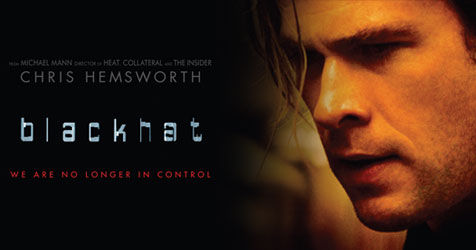In the rapidly expanding, increasingly menacing world of cybercrime, hackers bent on fomenting chaos are known as blackhats.
Beyond demonstrating their own skills, their primary goal tends to be sowing disruption rather than, say, triggering a financial windfall or highlighting a particular cause or ideology.
Nicholas Hathaway (Chris Hemsworth), the protagonist of the topical thriller “Blackhat” (Universal), is one such coder. His ability to discern the motivations of the anonymous hacker who functions as the movie’s villain is the key to the plot and to Hathaway’s truncated journey toward redemption.
Nothing is purely white or black. Director Michael Mann’s aesthetic suits this picture’s subject matter, themes and locations, so there’s good reason to expect an original movie, or at least one that makes computing and engaging in digital terrorism seem like innately dynamic activities.
“Blackhat” does not disappoint insofar as it has visual energy -- a look and flow that are simultaneously kinetic and lyrical -- underscored by eerily pulsating electronic music. Yet in the end it’s a standard action picture that glorifies physical aggression and unintentionally proves that hacking is far from a novel or elevated form of criminality.
The good news is that the movie is free of grossly offensive elements. By not including disturbing images of gore, streams of vulgar language or scenes of low carnality, Mann and company tweak the current action formula to a small but welcome degree.
The film contains considerable, moderately graphic, action violence, a mostly implied premarital sexual relationship and some crass language. (A-III, R)

